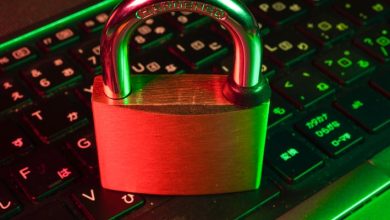The Importance of Regular Security Audits
- The Benefits of Regular Security Audits
- Protecting Your Data with Routine Security Audits
- Understanding the Role of Security Audits in Cybersecurity
- How Regular Security Audits Can Prevent Data Breaches
- The Key Components of an Effective Security Audit
- Ensuring Compliance Through Regular Security Audits
The Benefits of Regular Security Audits
Regular security audits are essential for any organization to ensure the safety and integrity of their data and systems. These audits help identify vulnerabilities and weaknesses in the security infrastructure, allowing for timely remediation before any potential breaches occur. By conducting regular security audits, businesses can stay one step ahead of cyber threats and protect their sensitive information from falling into the wrong hands.
One of the key benefits of regular security audits is the ability to detect and address security gaps before they are exploited by malicious actors. By proactively identifying vulnerabilities in the system, organizations can implement necessary security measures to prevent data breaches and cyber attacks. This proactive approach to security not only helps in safeguarding sensitive information but also enhances the overall resilience of the organization’s security posture.
Moreover, regular security audits can also help in ensuring compliance with industry regulations and standards. Many regulatory bodies require organizations to conduct regular security assessments to demonstrate their commitment to protecting customer data and maintaining a secure environment. By conducting these audits on a consistent basis, businesses can avoid costly fines and penalties for non-compliance with regulatory requirements.
In addition to enhancing security and compliance, regular security audits can also help in improving operational efficiency. By identifying and addressing security weaknesses, organizations can streamline their processes and optimize their security infrastructure. This can lead to cost savings in the long run by reducing the risk of security incidents and minimizing the impact of potential breaches on the business operations.
Overall, regular security audits play a crucial role in ensuring the safety and security of an organization’s data and systems. By conducting these audits on a consistent basis, businesses can stay ahead of cyber threats, comply with regulations, and improve operational efficiency. Investing in regular security audits is a proactive measure that can help organizations mitigate risks and protect their most valuable assets.
Protecting Your Data with Routine Security Audits
Regular **security audits** are essential for **protecting** your **data** from **cyber threats**. By conducting routine **security audits**, you can **identify vulnerabilities** in your **systems** and **networks** before they are **exploited** by **hackers**. These **audits** help ensure that your **security measures** are up to date and **effective** in **preventing** **breaches**.
During a **security audit**, **security professionals** will **review** your **security policies**, **protocols**, and **practices** to **assess** their **strengths** and **weaknesses**. They will **analyze** your **network** for any **potential** **risks** and **recommend** **improvements** to **enhance** your **security posture**. By **conducting** these **audits** regularly, you can **stay** one step ahead of **cyber attackers** and **protect** your **sensitive information**.
In addition to **identifying vulnerabilities**, **security audits** also help **demonstrate** **compliance** with **regulatory requirements** and **industry standards**. **Regulators** and **customers** often **require** **evidence** of **regular security audits** to **ensure** that **organizations** are **taking** **data security** **seriously**. By **proactively** **conducting** **security audits**, you can **show** that you are **committed** to **protecting** your **data** and **maintaining** **trust** with **stakeholders**.
In conclusion, **regular security audits** are **critical** for **protecting** your **data** and **maintaining** **cybersecurity**. By **proactively** **identifying vulnerabilities** and **demonstrating** **compliance**, you can **strengthen** your **security defenses** and **reduce** the **risk** of **data breaches**. **Investing** in **routine security audits** is **an investment** in the **safety** and **security** of your **organization**.
Understanding the Role of Security Audits in Cybersecurity
Security audits play a crucial role in maintaining the overall cybersecurity of an organization. These audits involve a comprehensive review of the security measures in place to identify any vulnerabilities or weaknesses that could be exploited by cyber attackers. By conducting regular security audits, businesses can proactively assess their security posture and take necessary steps to strengthen their defenses.
During a security audit, various aspects of an organization’s security infrastructure are evaluated, including network security, data protection measures, access controls, and security policies. The goal is to ensure that all security measures are up to date and effective in mitigating potential risks. By identifying and addressing security gaps through audits, organizations can reduce the likelihood of a successful cyber attack.
Furthermore, security audits help organizations comply with industry regulations and standards related to cybersecurity. Many regulatory bodies require businesses to undergo regular security audits to ensure they are following best practices and protecting sensitive data. Failing to comply with these regulations can result in hefty fines and damage to the organization’s reputation.
Overall, security audits are an essential component of a robust cybersecurity strategy. They provide valuable insights into an organization’s security posture and help identify areas for improvement. By conducting regular audits, businesses can stay one step ahead of cyber threats and protect their valuable assets from potential breaches.
How Regular Security Audits Can Prevent Data Breaches
Regular security audits are crucial in preventing data breaches and ensuring the protection of sensitive information. By conducting routine assessments of your systems and networks, you can identify vulnerabilities and weaknesses that could potentially be exploited by cybercriminals. These audits allow you to address any security gaps proactively before they are exploited, reducing the risk of a data breach occurring.
During a security audit, various aspects of your organization’s security measures are evaluated, including network security, access controls, data encryption, and security policies. By thoroughly examining these areas, you can pinpoint areas that need improvement and take corrective actions to strengthen your overall security posture. This proactive approach can help you stay one step ahead of cyber threats and minimize the likelihood of a data breach.
In addition to identifying vulnerabilities, regular security audits also help in ensuring compliance with industry regulations and standards. Many regulatory bodies require organizations to conduct security assessments regularly to maintain compliance and protect consumer data. By staying compliant with these regulations, you not only avoid potential fines and penalties but also demonstrate to your customers that you take their privacy and security seriously.
Furthermore, conducting regular security audits can also help in building trust with your customers and stakeholders. By demonstrating a commitment to security through proactive measures such as audits, you can instill confidence in your ability to protect sensitive information. This can lead to increased customer loyalty and trust, ultimately benefiting your organization’s reputation and bottom line.
Overall, regular security audits play a critical role in preventing data breaches and safeguarding your organization’s valuable assets. By staying vigilant and proactive in assessing your security measures, you can stay ahead of cyber threats and protect your data from falling into the wrong hands. Make security audits a priority in your organization to ensure ongoing protection and peace of mind.
The Key Components of an Effective Security Audit
An effective security audit is crucial for ensuring the safety and integrity of a company’s digital assets. There are several key components that must be included in a security audit to make it comprehensive and thorough:
- Network Security: This component focuses on assessing the security measures in place to protect the company’s network from unauthorized access and cyber threats.
- Endpoint Security: Evaluating the security of devices such as computers, laptops, and mobile devices to ensure they are protected from malware and other security risks.
- Access Control: This involves reviewing the access rights and permissions granted to employees and ensuring that only authorized individuals have access to sensitive information.
- Data Security: Assessing the measures in place to protect data from breaches, leaks, and unauthorized access, including encryption and data loss prevention strategies.
- Security Policies and Procedures: Reviewing the company’s security policies and procedures to ensure they are up to date, comprehensive, and effectively communicated to employees.
By including these key components in a security audit, companies can identify vulnerabilities, gaps, and weaknesses in their security posture and take proactive measures to address them. Regular security audits are essential for staying ahead of evolving cyber threats and protecting sensitive information from potential breaches.
Ensuring Compliance Through Regular Security Audits
Regular security audits are essential for ensuring compliance with industry regulations and standards. These audits help organizations identify vulnerabilities and weaknesses in their security systems, allowing them to take proactive measures to address these issues before they are exploited by malicious actors. By conducting regular security audits, companies can demonstrate their commitment to protecting sensitive data and maintaining the trust of their customers and stakeholders.
During a security audit, a team of experts will assess the organization’s security controls, policies, and procedures to identify any gaps or deficiencies that could potentially be exploited by cybercriminals. They will also review the organization’s compliance with relevant regulations and standards, such as GDPR, HIPAA, or PCI DSS, to ensure that all necessary security measures are in place.
By conducting regular security audits, organizations can stay ahead of emerging threats and ensure that their security posture remains strong and resilient. These audits provide valuable insights into the effectiveness of existing security measures and help organizations prioritize their security investments to address the most critical vulnerabilities.
In conclusion, regular security audits are a critical component of a comprehensive cybersecurity strategy. By proactively identifying and addressing security risks, organizations can protect their sensitive data, maintain compliance with industry regulations, and safeguard their reputation. Investing in regular security audits is an investment in the long-term security and success of the organization.



